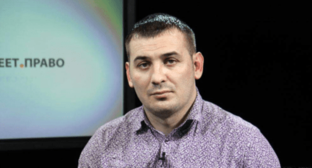16 May 2018, 10:00
Russia: 50+ International and Russian NGOs unite to condemn Telegram block and the Russian authorities’ broader assault on freedom of expression online
More than 50 international and Russian human rights, media and internet freedom organisations have united behind a call for Russia to stop its attempts to block the instant messaging application Telegram and for the country’s authorities to cease their broader crackdown on Internet freedom and digital privacy.
Shortly after Russia started to restrict access to Telegram by blocking millions of Internet Provider (IP) addresses at the end of April, a coalition of 26 international organisations published an initial statement, condemning Russia’s actions and calling on the authorities to uphold freedom of expression. This caught the attention of other international as well as domestic organisations that have subsequently added their backing to the call. The group now includes more than 20 of the Russia’s leading civil society groups working on human rights, media and Internet freedom.
***
“Recent mass demonstrations across Russia demonstrate Russian people’s anger at our government’s attempts to restrict Internet freedom and undermine digital privacy. This strong public outcry reflects the extent of Internet disruption caused by Russian efforts to block Telegram and the severe impact on freedom of expression and access to information,” statedGalina Arapova, Media Lawyer and Executive Director of the Mass Media Defence Centre, based in Voronezh, Russia. “Our fundamental rights have been systematically undermined in Russia over the past decade, with increased restrictions on media and civil society, leaving the Internet as a key remaining lifeline for the free flow of information and open discussion. Telegram in particular has been utilised in Russia not just as a channel for personal communication, but as a new media instrument - a means to publish free and independent information,” Ms Arapova added.
***
“We should all be concerned: this is not just a Russian problem and such actions affect how we all connect and are monitored online – particularly as Russia tries to force Internet companies to comply with orders that violate their users’ rights, including the right to secure and private communication,” stated Thomas Hughes, Executive Director for ARTICLE 19, the international organisation working to protect and promote freedom of expression. “In their, so far unsuccessful, attempts to make Telegram completely inaccessible, the Russian authorities have ordered the blocking of millions IP-addresses. The resulting collateral blocking of thousands of other resources, including some online media, can only be considered a gross violation of freedom of expression and right to information. A strong response is needed from all interested parties, including countries, institutions or companies, in order to uphold the right to a free and open Internet for everyone,” concluded Mr Hughes.
***
The statement – available in English and Russian – provides specific recommendations to the Russian authorities, as well as international institutions such as the United Nations (UN), the Council of Europe (CoE), the Organisation for Security and Cooperation in Europe (OSCE), the European Union (EU), the United States and other concerned governments to challenge Russia’s actions and uphold the fundamental rights to freedom of expression and privacy online as well as offline. It also urges Internet companies to resist unfounded and extra-legal orders that violate their users’ rights.
Background
On 13 April 2018, a Moscow District Court granted Roskomnadzor, Russia’s communications regulator, its request to block access to Telegram on the grounds that the company had not complied with a 2017 order to provide decryption keys to the Russian Federal Security Service (FSB). Since then, the actions taken by the Russian authorities to restrict access to Telegram have caused mass Internet disruption in the country, including mass collateral blocking of websites. Between 16-18 April 2018, almost 20 million Internet Protocol (IP) addresses were ordered to be blocked by Roskomnadzor as it attempted to restrict access to Telegram. The majority of the blocked addresses are owned by international Internet companies, including Google, Amazon and Microsoft. At time of publication, 10.9 million IP addresses remain blocked in the country.




